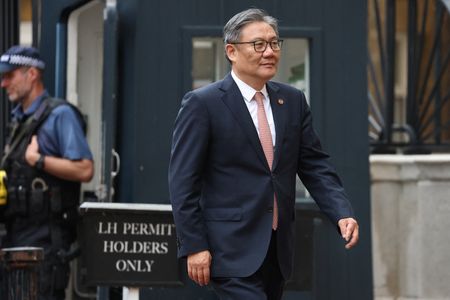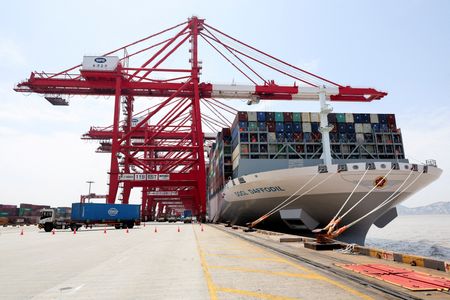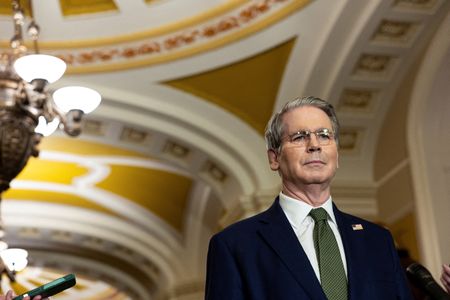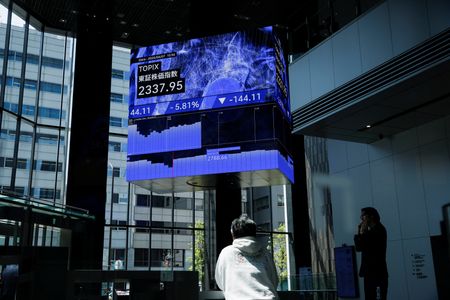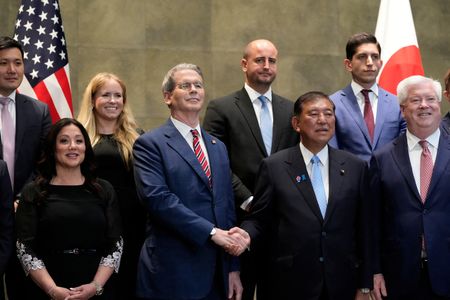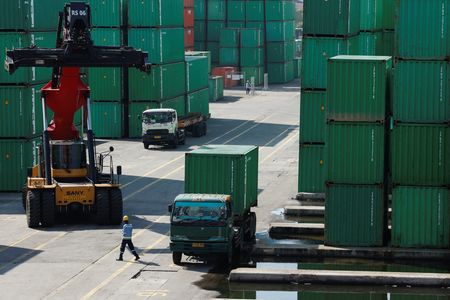By Joe Cash
BEIJING (Reuters) -China wants to bring its trade ties with the U.S. back to a stable footing, its commerce minister said, adding that recent talks in Europe showed there was no need for a tariff war while urging the U.S. to act in a manner befitting of a superpower.
Commerce Minister Wang Wentao told reporters on Friday that the “ups and downs” in the two countries’ relationship underscored their economic interdependence.
Asked about the United States specifically, Wang said: “Major countries should act like major countries. They must shoulder their responsibilities,” adding that China would protect its national interests.
China is facing an August 12 deadline to reach a durable tariff agreement with the United States, after Beijing and Washington reached a preliminary deal last month to end weeks of escalating tit-for-tat tariffs.
If no deal is reached, global supply chains could face renewed turmoil from duties exceeding 100%.
Wang said negotiations in Geneva and London earlier this year demonstrated there was no need to return to a trade war.
“Practice has proven that through dialogue and consultation, with leadership and communication at the highest levels, we can properly manage contradictions and resolve our differences,” he said.
“We will continue to strengthen dialogue and communication, deepen consensus, reduce misunderstandings, enhance cooperation, to jointly put China-U.S. economic and trade relations back on track to achieve healthy, stable and sustainable development.”
China’s rare earths exports rose 32% month-on-month in June, customs data showed on Monday, in a sign that agreements struck last month in London to free up the flow of the metals were possibly bearing fruit.
Chipmaker Nvidia will also resume selling its H20 AI chips to China, Chief Executive Jensen Huang said at an event in Beijing this week, a move U.S. Commerce Secretary Howard Lutnick said was also part of negotiations on rare earths.
Wang said on Friday that he had met Huang the previous day, describing the meeting as evidence that “as the dust settles, everyone has come to the conclusion – especially the U.S. side – that forced decoupling is impossible.”
Wang said the current overall tariff level imposed by the U.S. on China was “still high” at 53.6%. Analysts have said that additional duties exceeding 35% will probably wipe out Chinese manufacturers’ profit margins.
“Both sides have come to understand that they need each other, as lots of the goods and services that we exchange are irreplaceable, or at least difficult to exchange in the short-term,” Wang said.
“China does not want a trade war, but it is not afraid of one,” he reiterated.
($1 = 7.1811 Chinese yuan renminbi)
(Reporting by Joe Cash and Ethan Wang; Editing by Christopher Cushing, Kim Coghill and Kate Mayberry)

